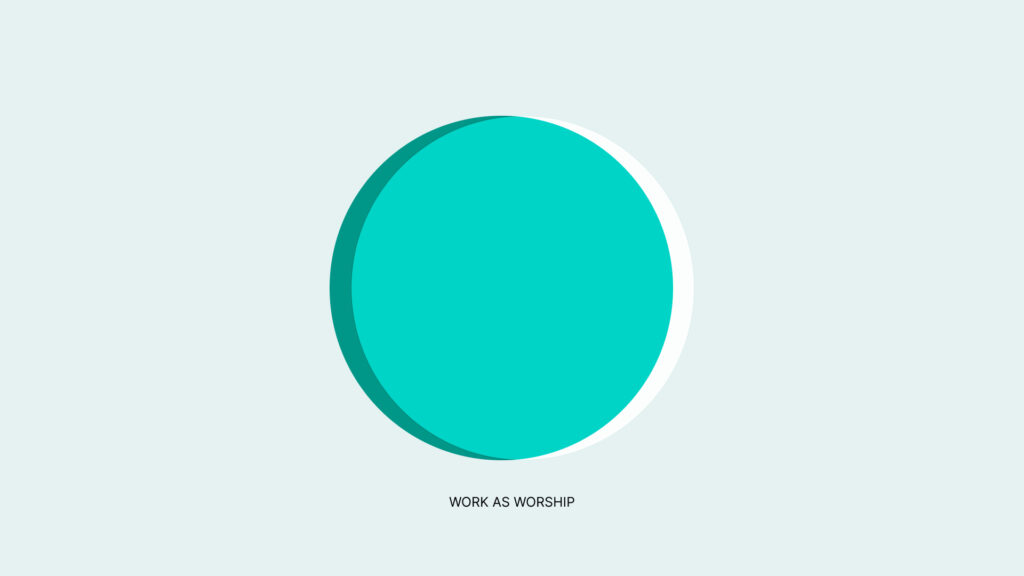Last month, it was reported that drivers for the United Parcel Service (UPS) could now earn an average of $170,000 in annual pay and benefits at the end of a 5-year contract following a union deal. This month, the United Auto Workers union (UAW) is on strike against GM, Ford, and Stellantis, demanding higher pay, more benefits, and fewer working hours.
These stories have sparked their fair share of criticism and political furor. But what interests me more is how stories like these reveal how we think about work.
Admit it: when you hear you could make more money on a different career path, especially one that, from the outside, may appear easier or at least less stressful than your current job, it ignites a grass-is-greener internal monologue.
After first hearing how much UPS drivers could make, who among us didn’t at least briefly consider donning the brown shorts?
Stories like these make us think about what makes a fair wage and whether we chose the right career path. But more than that, these stories force us to reflect on the nature of work itself, its purpose, and how we, as believers, should think about our jobs.
What Is Work For?
Are our jobs just for making money? A necessary evil we have to do to provide food, shelter, and a few nice things for us and our family? Or is work for something more?

Too often, we think of work and worship as entirely disconnected spheres of life. But I will argue that more than anything else, your work is your primary opportunity for worshipping God. And the more we can close the gap between work and worship in our minds, the more fulfilling we will find our work, and the better we will worship God through it.
Let’s look at three ways we worship God through our work and how this mindset shift can affect how we approach our jobs.
Worship Through Serving at Your Work
The first way we can worship God through our work is in how we do the work.
As we read the New Testament, we discover that Christ died not just to save us from our sins but also to transform us. He wanted to make us into a new creation that desires and is fruitful in producing good works.
“who gave himself for us to redeem us from all lawlessness and to purify for himself a people for his own possession who are zealous for good works.”
Titus 2:14, emphasis mine
But what are good works?
Traditionally, the church has spoken of good works in two broad categories: works of piety and works of mercy. Works of piety concern our vertical relationship with God, things like prayer, corporate worship, study of the Scriptures, etc. While works of mercy concern our horizontal relationship with our fellow creatures, including service, giving, relieving suffering, etc.
This is the same distinction that categorizes the two tables of the Ten Commandments in Exodus 20; the first three commandments concern our relationship with God, and the last seven our relationship with our fellow man. Jesus Himself signed off on this distinction when he summarized the law in the two greatest commandments: Love God and love your neighbor (Mark 12:28-34, Luke 10:25-28)—works of piety and works of mercy, respectively.
These good works do not contribute to our salvation but are the natural product of a life transformed by Christ; good works are the fruit Christians produce (Matthew 7:17–20; Luke 6:43; James 3:12).
Doing good work is one of the best vehicles for doing good works.
I think we make a mistake, however, when we mentally relegate our good works only to church life. Indeed, we practice works of piety on Sunday morning as we pray and praise the Lord. And we practice works of mercy as we encourage our brothers and sisters in Christ, provide for their needs, and practice the “one anothers” of Scriptures. It is proper that the local church be the primary sphere of these good works (Galatians 6:10). But unless your job is full-time ministry, most of your time isn’t spent at church or with other believers. Most of your time is spent at work.
So where do good works fit in at work? How do we worship God at work?
The answer is this: Doing good work is one of the best vehicles for doing good works. This is true both for acts of piety and acts of mercy. You can perform acts of service toward others and worship to God at your job. And this depends entirely on the heart with which we approach our work.
Paul demonstrates how this is possible in his instructions to slaves.
“Bondservants, obey in everything those who are your earthly masters, not by way of eye-service, as people-pleasers, but with sincerity of heart, fearing the Lord. Whatever you do, work heartily, as for the Lord and not for men,”
Colossians 3:22–23
The work is to be done heartily, as for the Lord. On the outside, it looks just like another day at the office. But on the inside, at the heart level, you’re making spreadsheets to the glory of God. Your work is becoming worship.

Likewise, your secular vocation can also be the occasion for works of mercy.
You can love your neighbor in how you serve your boss, coworkers, clients, and customers. When you go above in beyond at your job, from a heart motivated by love, that’s when you’re working like a Christian. Just because you don’t work in ministry doesn’t mean your work can’t be a ministry. If it arises from a desire to please God and serve neighbor, the work itself is transformed from good work into good works.
When you approach your vocation with this heart attitude, you take a sledgehammer to the sacred/secular divide. Suddenly, the spheres of work and worship begin to overlap, just as God designed them to.
Worship Through Giving Through Your Work
The second way we worship God through our work is by giving a portion of our financial resources back to God.
I’ve spoken to many believers in high-paying secular jobs who struggle because they don’t see how their work connects to the things of God. Paul’s instructions to those with money, however, are not to abandon their careers and run to the mission field (though some indeed may be called to this). Instead, Paul tells them to be “rich in good works, generous, and ready to share” (1 Timothy 6:17–19).
In other words, use the money to serve God.
It’s easy to feel our work is meaningless when working “just for a paycheck.” But when you recognize that what you do with that paycheck is an essential part of worship, it’s easier to find your work more meaningful.
As New Testament believers, we don’t burn sacrifices. But we do still worship through the sacrifice of giving financially. The money you give to God through your local church comes from your work during the week. And this is no small part of your worship.
God’s design from the beginning was that work and worship would be very closely related. The Old Testament makes this connection vivid. Sacrifices of worship were nearly always drawn from the fruits of one’s labor. Work was directly related to worship.
Just look at the first sacrifice in Scripture. Cain brings a portion of the fruits of the ground he grew, and Abel brings the firstborn of his flocks (Genesis 4:2–4). Their work supplied the sacrifices for their worship. And this is the pattern we see throughout the Bible. God’s people worship Him by giving to Him from the fruits of their labors (see Ex 24:26; Lev 2:14; Deut 12:6; Num 12:20). The fuel for their worship came from their work.
In our day, the relationship between giving and worship is somewhat obscured by currency. I don’t directly give to God what I’m producing with my work. As a so-called “knowledge worker,” I don’t even know how I would do that (upload some .docx files to a heavenly cloud?). Instead, I give Him a portion of the money I earn from my work. But the principle remains the same. When I give, I worship God through my work.
As New Testament believers, we don’t burn sacrifices. But we do still worship through the sacrifice of giving financially. The money you give to God through your local church comes from your work during the week. And this is no small part of your worship. It’s quite beautiful when you recognize that the money you make on Friday can be turned into fuel for worship on Sunday.
Perhaps part of the reason you feel your work is disconnected from your worship is that you are not giving as you ought, or at least not with the right attitude.
Worship Through Resting from Your Work
The command for Sabbath observance in the Decalogue is a command for work, “six days shall you labor, and do all your work,” as well as a command for rest, “and the seventh day is a Sabbath unto the LORD your God. On it you shall not do any work…” (Exodus 20:8–11).
God created us to be a working people. As John Calvin wrote,
Men were created for the express purpose of being employed in labor of various kinds
Commentary on a Harmony of the Evangelists 2: 143
This was God’s purpose from the beginning of creation before we even fell into sin, and our work was cursed with difficulty and futility (Genesis 1:28; 2:15; 3:17–19).
But we don’t work all the time; we also rest. And this, too, is part of our worship.
During the week, we worship God as we do our labors as unto Him, serving our neighbor, and bringing a portion of what we earn back to Him as a gift. But we also worship God when we deliberately decide to stop working.
When we rest from our labors, we acknowledge that our provision is not ultimately secured by our hand but by God’s. No matter how hard I work, “unless the LORD builds the house, the laborers labor in vain” (Psalm 127:1).
By resting from my work, I admit my finitude. God alone is omnipotent, and I am but a creature. When I rest, I humbly submit to the pattern God gave us when He rested from His work in creation (Genesis 2:2–3; Exodus 20:11).
And once again, the gap between work and worship is closed all the more when we worship God through resting from work.
Work as Worship: A New Mindset

Work and worship are more aligned than we think. At least, they ought to be.
but glorifying God through your job starts with a change of mindset. Your work is not just a means to an end, a necessary evil to pay the bills—no, that way lies discontent and grumbling. Your work is a calling—a vocation, as we used to say. Your job is where God has placed you in this present season, a hand-selected embassy for one of his chosen ambassadors to the world. And as such, your work can and should be done as worship unto Him.
Worship isn’t just what you do when your hands are raised in church, but also when they’re clacking away at the keyboard, turning a wrench under a car hood, or greeting a customer as they walk into your store. Worship is found in the paycheck when we return a portion to God, and on the front porch on Saturday afternoon, laptop shut, good book in hand, resting from your week’s labors to the glory of God.
Work is worship.

